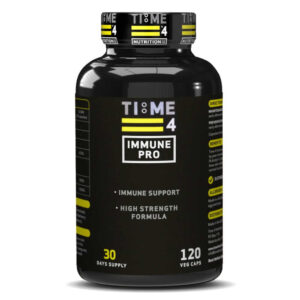WHAT IS THE BEST IMMUNE SUPPORT SUPPLEMENT?
What is the best immune support supplement?
Best Immune Support Supplement
(Click on the Reference Numbers in Blue for More Info)
In the field of health and fitness, you will often hear people talk about the muscular system, the cardiovascular system or perhaps the endocrine system, which is responsible for the production and secretion of the many hormones in the body. One system that is fundamental to our health, wellbeing and ultimately, our ability to train and reach peak levels of fitness and performance, yet rarely gets a mention unless we are ill, is the immune system. While a minor infection, such as a common cold or gastrointestinal upset, may just be a slight inconvenience for many people, it can limit an athlete’s ability to train and even compete in major competitions. The importance of maintaining a healthy, efficient and robust immune system has become apparent for us all recently, but it is particularly important for this group, yet can be made more difficult by the rigours of training.
Understanding the immune system
Rather than being a single entity our immune system is a complex network of intricate stages, specialised cells and pathways in the body, that are working together constantly to fight off disease and infection to keep us healthy. It does this by recognising foreign invaders, such as bacteria, viruses, and parasites, and taking immediate action to deal with them.
We actually have two immune systems known as the innate and adaptive systems.
Our innate immune system provides us with the immunity we are born with. It is our first-line of defence against pathogens that try to enter our body, and includes:
- Skin that keeps out the majority of pathogens
- Mucus that traps pathogens
- Stomach acid that destroys pathogens
- Enzymes in our sweat and tears that help create anti-bacterial compounds
- Immune system cells that attack all foreign cells entering the body
Our adaptive immune system, on the other hand, provides us with acquired immunity. This means it is not present at birth; rather, it has to learn to recognise a pathogen. It is regulated by cells and organs in our body such as the spleen, thymus, bone marrow, and lymph nodes.
When a pathogen enters the body, these cells and organs create antibodies and increase the levels of immune cells, including various types of white blood cells, that are specific to the pathogen and attack and destroy it. Our immune system then adapts or ‘learns’ by remembering the pathogen so that if it enters the body again, it is dealt with more quickly and efficiently.
What depresses our immune system?
Generally, our immune system does a good job of keeping us healthy by defending us against potential threats, but it is not infallible and can become depressed, increasing our chances of getting ill. Various factors have been identified which contribute to the depression of the immune system. These include:
- Aging: As we age, our immune system becomes less efficient. Also, ageing can be associated with certain nutrient deficiencies, which may exacerbate the decline in immune function associated with increasing age.
- Obesity: Excessive body fat is associated with low-grade chronic inflammation and may result in impaired function of T-cells, a type of white blood cell.
- Environmental toxins: Particles contributing to air pollution, and excessive alcohol can impair the normal function of the immune cells.
- Poor diet: A diet lacking in certain key nutrients can impair the production and function of immune cells and antibodies.
- Chronic illness: Certain chronic health problems, such as HIV, can attack and potentially inhibit immune cells.
- Chronic stress: Being stressed for long periods is associated high levels of certain hormones such as cortisol, which can inhibit the immune system.
- Poor sleep: When we sleep a certain type of immune cell known as cytokine is released, which combat infection. Insufficient sleep leads to a reduction in the number of cytokines and other important immune cells.
How can we strengthen our immune system?
By understanding what can depress our immune system, we can get a pretty good idea of how we can strengthen it. While we can’t do anything about our age, there is plenty we can do. In short, this means living a healthy lifestyle. More specifically: don’t smoke, eat a diet high in fruit and vegetables, maintain a healthy body weight, get sufficient sleep, only drink alcohol in moderation, minimise stress levels, take steps to reduce the risk of infection such as handwashing, and exercise regularly.
Exercise and immunity

It has long been acknowledged that exercise can play an important role in boosting the immune system. However, you may have found that when you are training hard you tend to pick up more colds and other minor infections. Although this may seem counterintuitive, it does help to demonstrate that the relationship between exercise and immune function is not a linear one, i.e., it’s not simply a matter of the more exercise we do the stronger our immune system becomes. This phenomenon was noted as far back as ancient Greece, when Plato and Aristotle suggested that health is the consequence of an adequate balance between feeding and physical exercise and that illness comes when this balance is broken, either for a lack of exercise, or as in the case of the athletes, due to an excess.
Generally speaking, moderate exercise seems to exert a protective effect, whereas repeated bouts of strenuous exercise can result in immune dysfunction. It has been proposed that the relationship between the amount and intensity of exercise and susceptibility to upper respiratory tract infections (URTIs), such as the common cold, follows a J shape. That is, moderate intensity exercise reduces the risk of developing URTI below that of a sedentary person, where as the risk rises to above-average levels after intense exercise.
This has led to the development of the ‘open window’ theory, which suggests that short term suppression of the immune system following an acute bout of endurance exercise may provide an ‘open window’ for viruses and bacteria to gain a foothold. It seems that vigorous, but not moderate, intensity exercise may increase the risk of developing an infection for a few hours to 1-4 days after the exercise.
Periods of intensified training (overreaching) lasting 1 week or more may result in longer lasting immune dysfunction. It is important to note that although it is possible that the combined effects of small changes in the immune system may compromise resistance to common minor illnesses, elite athletes are not clinically immune deficient, and that the health-related benefits of exercise far outweigh the risks.
The role of nutrition in the immune response to exercise
Nutrition also plays a major role in how your immune system deals with the demands of intense training. A healthy immune system requires nourishment. It is well acknowledged that people who are malnourished are more vulnerable to infectious diseases. As we have seen, strenuous bouts of prolonged exercise and intense training are associated with depressed immune function, which can be compounded by inadequate or inappropriate nutrition.
Dietary deficiencies of protein and specific micronutrients, such as vitamin D and zinc, have long been associated with immune dysfunction. So too has an excessive intake of fat and exercising in a carbohydrate-depleted state, which results in larger increases in circulating stress hormones and a greater disturbance of several aspects of immune function. Similarly, exercising with an inadequate energy intake may also have a negative impact on immune function (1).
On the other hand, simply consuming 30-60 g carbohydrate per hour during sustained intensive exercise attenuates rises in stress hormones, such as cortisol, and appears to limit the degree of exercise-induced immune depression (2).
Therefore, in order to maintain robust immunity, athletes need to consume a well-balanced diet that is sufficient to meet their requirements for energy, carbohydrate, protein and micronutrients (1,2).
This can be difficult to achieve even when consuming a well-balanced diet. Consequently, various immune support supplements are often taken to provide additional support for the immune system to enable it to deal with the rigours of hard training. Typically, these consist of a selection of vitamins and minerals known to play a role in immune function. While these are useful, there is a growing body of scientific evidence to support the use of a range of novel ingredients to enhance immune function in addition to the traditionally used micronutrients.
This is where Time 4 Immune Pro immune support supplement can be a valuable addition to your diet. Here at Time 4 Nutrition, we pride ourselves on employing the findings of latest cutting-edge research to produce the most effective, innovative, evidence-based products.
In this article, we are going to review a selection of that research and explain how there’s a lot more to Time 4 Immune Pro immune support supplement than the name suggests.
What’s in Time 4 Immune Pro our immune support supplement?
Time 4 Immune Pro is a potent combination of natural substances designed to enhance the body’s immunity. These include NAC (N-Acetyl-L-Cysteine), Beta-Glucans, Quercetin Dihydrate, Vitamin C (Ascorbic Acid), Elderberry Extract (Sambucas Nigra), Zinc and Vitamin D.
As we look at each of these ingredients in-depth, you’ll begin to see why Time 4 Immune Pro immune support supplement is such a great product and how it may benefit you.
Immune Support Supplement: What is N-Acetyl-L-Cysteine (NAC)?
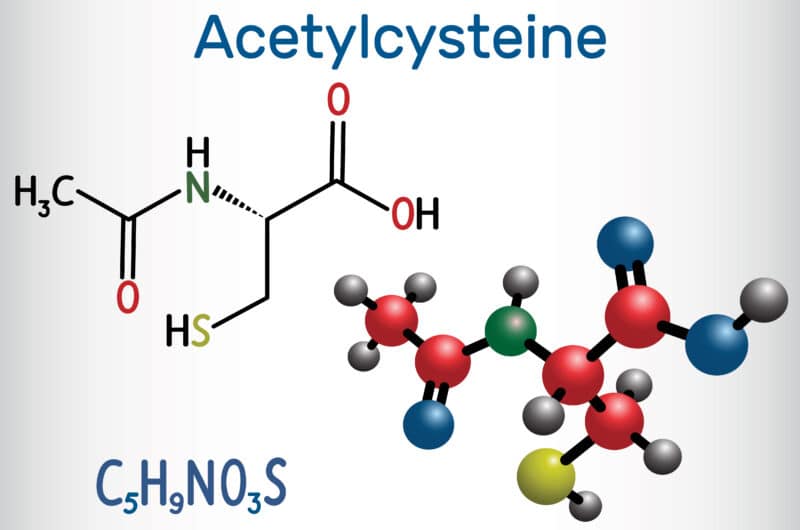
Cysteine is a naturally occurring amino acid. It is found in the majority of high-protein foods, such as chicken, turkey, yogurt, cheese, eggs, sunflower seeds and legumes. It’s considered to be a semi-essential or conditionally essential amino acid because the body can produce it from the amino acids methionine and serine. However, if the dietary intake of methionine and serine is low it needs to be consumed in the diet.
N-Acetyl-L-cysteine (NAC) is a supplement form of cysteine. It has been associated with a number of health benefits including replenishing glutathione, the most powerful antioxidant in the body, and aiding the body’s detoxification process. It can also help with chronic respiratory conditions, fertility, brain health, diabetes and reducing oxidative damage to the heart. More recently, NAC’s role in immune function has been highlighted.
Does N-Acetyl-L-Cysteine boost immune function?
A review by Shi and Puyo (3) highlighted the beneficial effects of NAC on immune function. The authors noted that NAC can boost the immune system, suppress viral replication, and reduce inflammation. The review highlighted a study by De Flora et al., which demonstrated that oral administration of NAC significantly improved cell-mediated immunity, shifting from a lack of reaction from immune cells to foreign substances, such as bacteria and viruses to normal immune function in seniors. They also noted that treatment significantly decreased the frequency of influenza, as well as the severity and duration of most symptoms. The authors concluded that NAC has antioxidant, anti-inflammatory and immune-modulating characteristics that may prove beneficial in the treatment and prevention of SARS-Cov-2.
Geiler et al., (4) noted that NAC had been shown to inhibit replication of seasonal human influenza A viruses. They investigated the effects of NAC on virus replication, virus-induced pro-inflammatory responses and virus-induced apoptosis, normal cell death, in H5N1 influenza-infected lung cells. The results of the study showed that NAC inhibits H5N1 replication and H5N1-induced production of pro-inflammatory molecules. The authors concluded that antioxidants such as NAC represent a potential additional treatment option that could be considered in the case of an influenza A virus pandemic.
A study by Arranz et al., (5) investigated the effects of daily oral administration of NAC on several parameters of immune function in 36 healthy postmenopausal women. These parameters were analysed within 2 and 4 months of NAC intake and 3 months after the end of the supplementation. In parallel, samples from 18 healthy adult women aged 30-49 years were used as a control age group. The results showed general impairment of immune function and increased oxidation markers in postmenopausal women as compared with the control group; however, NAC administration significantly improved the parameters studied, bringing their values closer to those of younger women and thus exerting a modulatory, rather than a merely stimulatory, action on the immune system. These effects were also observed 3 months after the end of supplementation. The authors suggest that a short period of NAC supply (i.e., 2-4 months) may lead to prolonged strengthening of immune defence in postmenopausal women. Therefore, NAC could contribute to maintenance of good health and quality of life in postmenopausal women by decreasing the probability of immune system-related diseases, such as infections, in aging.
Immune Support Supplement: What are Beta-Glucans?
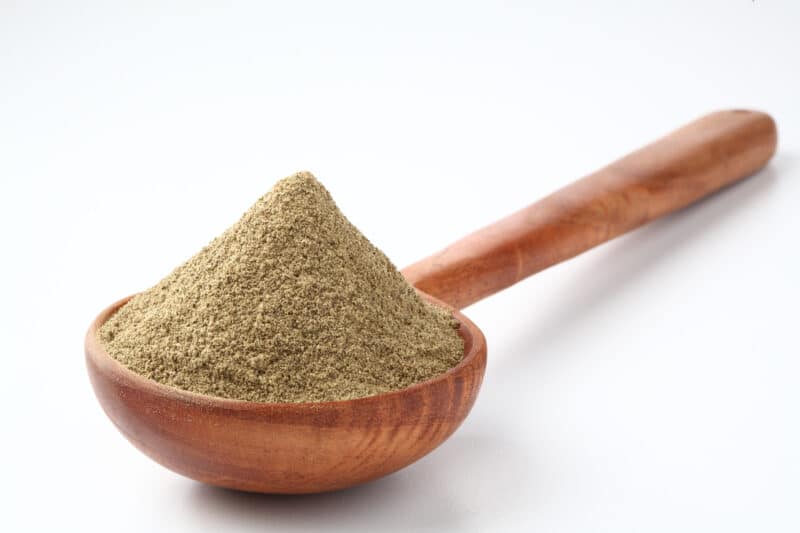
Beta-Glucans are a natural polysaccharide, occurring in plant cell walls and is also present in baker’s yeast cells, fungal cell walls, and some microorganisms. They are a form of dietary fibre, which are associated with a number of beneficial health properties including the prevention and treatment of certain digestive diseases, reducing cholesterol and blood sugar levels, promoting healthy gut bacteria, increasing feelings of fullness and supporting the immune system.
Do Beta-Glucans boost immune function?
A review by Ciecierska et al., (6) highlighted the many health benefits associated with the consumption of beta-glucan. The authors noted that the immune stimulating activity of beta-glucan occurs as a result of its attachment to specific receptors present on the immune cell surface. Beta-Glucan also belongs to the group of prebiotics which stimulate the growth and activity of the natural good intestinal bacteria, while inhibiting the growth of pathogens.
A study by McFarlin et al., (7) investigated the effects of baker’s yeast beta-glucan (BG) on the immune system of individuals undergoing intense exercise stress using two experiments. In the first, BG was compared to placebo supplementation for the incidence of URTI symptoms for 28 days post-marathon. In the second, changes in salivary immunoglobulin A (IgA) were evaluated after 50 minutes of strenuous cycling when participants had been supplemented for 10 days with either BG or a placebo (rice flour). In E1, BG was associated with a 37% reduction in the number of cold/flu symptom days post marathon compared to placebo. In E2, BG was associated with a 32% increase in salivary IgA at 2 hour after exercise compared to placebo. The authors concluded that BG may reduce URTI symptomatic days and improve mucosal immunity (salivary IgA) post exercise.
Murphy and colleagues (8) reviewed the literature on the immune modulating effects of beta-glucans and subsequent benefits on infection. They concluded that beta-glucans appear to be effective at enhancing immune function and reducing susceptibility to infection.
A study by Muramatsu and coleagues (9) investigated the effectiveness of beta-glucan (BG) for the prevention of influenza in mice. The results of the study showed that the replication of PR8 virus was significantly repressed by pre-treatment of BG. The authors concluded that BG may be effective for the prevention of influenza.
A review by Van Steenwijk Hidde et al., (10) highlighted the potential application of fungal beta-glucans in nutrition and medicine, reviewing their formulation, efficacy, safety profile, and immunomodulating effects. The authors compared the evidence base of the reputed health effects of fungal beta-glucan supplements with the published guidance documents by EFSA on substantiating immune stimulation and pathogen defence by food products. The results showed that fungal beta-glucans can play a role in supporting and maintaining health and, thus, can be seen as a good health promoting substance from food.
A study by Talbot and Talbot (11) evaluated the effect of a beta-glucan supplement on upper respiratory tract symptoms and psychological wellbeing in women with moderate levels of psychological stress. The results showed that the subjects who received the supplement reported fewer upper respiratory symptoms compared to placebo (10% vs 29%), better overall wellbeing, and superior mental/physical energy levels. The authors concluded that daily consumption of a beta-glucan supplement reduces upper respiratory symptoms and improves mood state in stressed subjects, and therefore, it may be a useful approach for maintaining immune protection against daily stressors.
Best Immune Support Supplement: What is Quercetin?
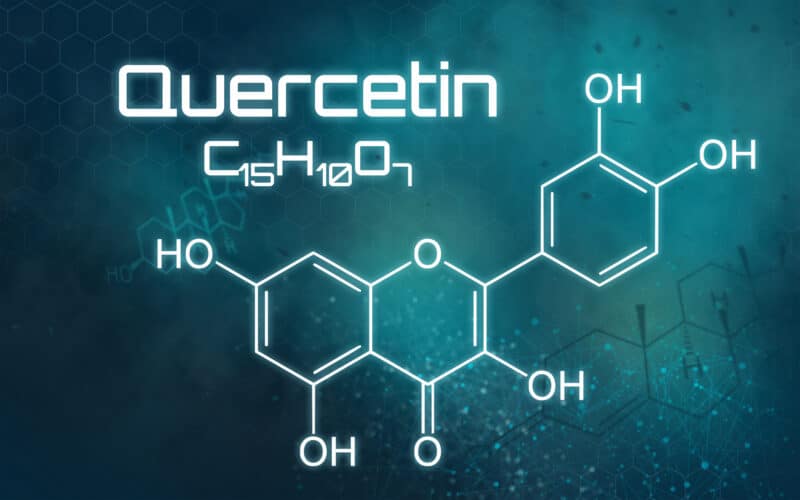
Quercetin is a pigment that belongs to a group of plant compounds called flavonoids. These naturally occur in many foods including vegetables, fruit and grains. Quercetin is one of the most important plant molecules, showing pharmacological activity such as antiviral, anti-atopic, pro-metabolic, and anti-inflammatory effects. It is one of the most abundant antioxidants in the diet and plays an important role in helping your body combat free radical damage, which is linked to chronic diseases. It is commonly found in onions, apples, grapes, berries, broccoli, citrus fruits, cherries, green tea, coffee and red wine. It is also taken as a supplement to boost immunity, fight inflammation, combat allergies, aid exercise performance and maintain general health.
Does Quercetin boost immunity?
A review by Li et al., (12) investigated the physicochemical properties, dietary sources, absorption, bioavailability and metabolism of quercetin, especially the main effects of quercetin on inflammation and immune function. The authors suggest that the results obtained both in vitro and in vivo, show good promise for the use of quercetin. They further suggest additional studies are needed to better characterise the mechanisms of action underlying the beneficial effects of quercetin on inflammation and immunity.
Somerville and colleagues (13) conducted a systematic review to assess the efficacy of dietary flavonoids on upper respiratory tract infections (URTIs) and immune function in healthy adults. Fourteen studies were included and the primary outcome measure was the effect of flavonoids on URTI incidence, duration, and severity. The results showed that overall, flavonoid supplementation decreased URTI incidence by 33% compared with control, with no apparent adverse effects. Sick-day count was decreased by 40% with flavonoid supplementation. The authors suggest that flavonoids are a viable supplement to decrease URTI incidence in an otherwise healthy population.
A study by Nieman et al., (14) investigated the effects of quercetin supplementation on incidence of upper respiratory tract infections (URTI) and exercise-induced changes in immune function. Trained male cyclists were randomised to quercetin or placebo groups and, under double-blind procedures, received 3 week quercetin or a placebo before, during, and for 2 weeks after a 3 day period in which subjects cycled for 3 hours per day. The results of the study showed quercetin significantly reduced URTI incidence in cyclists during the 2 week period after intensified exercise versus placebo ingestion, although it did not alter exercise-induced changes in several measures of immune function.
Best Immune Support Supplement: What is Vitamin C?
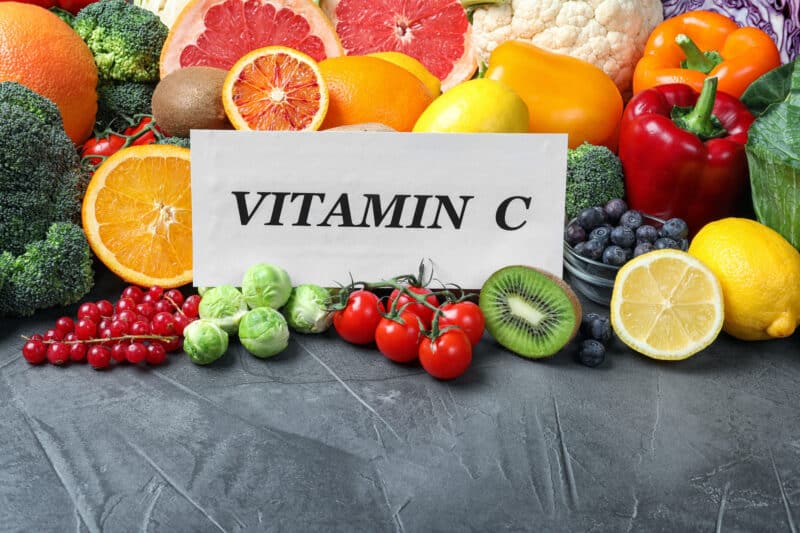
Vitamin C is a water-soluble vitamin found in plants, especially in fruits and leafy vegetables. It can also be produced synthetically. It has long been associated with good health and fitness as it plays an important role in the function of the immune system, energy production, nervous function, the absorption of iron, the reduction of tiredness and fatigue, the maintenance of normal psychological function and the reduction of oxidative stress.
Does Vitamin C boost immune function?
A review by Carr and Maggini (15) highlighted the many important roles vitamin C plays in the function of the immune system. Specifically, the authors noted vitamin C contributes to immune defence by supporting various cellular functions of both the innate and adaptive immune system. Vitamin C supports epithelial barrier function against pathogens and promotes the oxidant scavenging activity of the skin, thereby potentially protecting against environmental oxidative stress. It accumulates in phagocytic cells, which have the ability to deal with foreign particles, such as bacteria, and can ultimately enhance microbial killing. It is also needed for the controlled death and clearance of the spent white blood cells from sites of infection, thereby decreasing potential tissue damage.
The role of vitamin C in lymphocytes is less clear, but it has been shown to enhance differentiation and proliferation of B- and T-cells, likely due to its gene regulating effects.
Vitamin C deficiency results in impaired immunity and higher susceptibility to infections. In turn, infections significantly impact on vitamin C levels due to enhanced inflammation and metabolic requirements. Furthermore, supplementation with vitamin C appears to be able to both prevent and treat respiratory and systemic infections.
Hemilä (16) reviewed the results of three placebo-controlled studies that have examined the effect of vitamin C supplementation on common cold incidence in subjects under acute physical stress. In one study, the subjects were school-children at a skiing camp in the Swiss Alps, in another they were military troops training in Northern Canada, and in the third they were participants in a 90 km running race. In each of the three studies a considerable reduction in common cold incidence in the group supplemented with vitamin C (0.6-1.0 g/day) was found. The author concluded that C supplementation may be beneficial for subjects doing heavy exercise who have problems with frequent upper respiratory infections.
Bae and Kim (17) reviewed the roles of a number of micronutrients, including vitamin C, in the immune system with regard to COVID-19. They noted that the administration of vitamin C increased the survival rate of COVID-19 patients by attenuating excessive activation of the immune response. It also increases antiviral cytokines and free radical formation, decreasing viral yield and attenuates excessive inflammatory responses and hyperactivation of immune cells.
Best Immune Support Supplement: What is Elderberry Extract (Sambucas Nigra)?
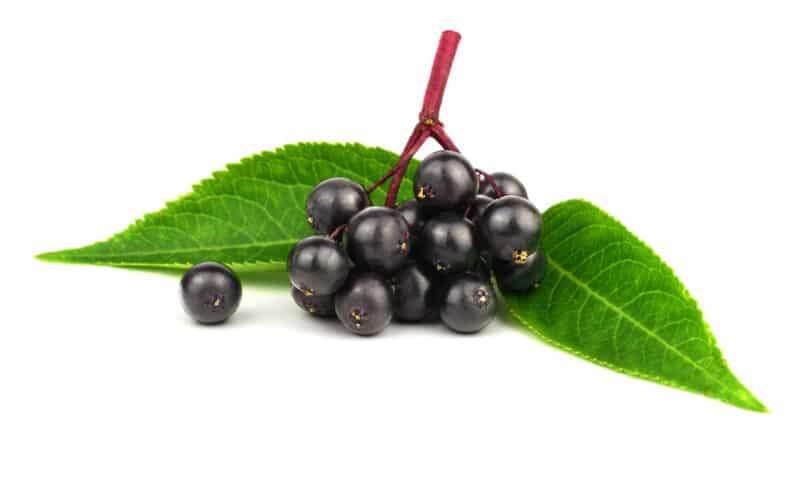
The term Elderberry refers to several different varieties of the Sambucus tree, which is a flowering plant. The most common type is Sambucus Nigra, also known as the European elderberry or black elder. It is one of the most commonly used medicinal plants in the world and has been since the time of the ancient Egyptians. Elderberries are a low-calorie food packed with antioxidants. They are high in vitamin C and fibre and are a good source of phenolic acids, which are potent antioxidants, and of the flavonols quercetin, kaempferol, and isorhamnetin. They have been associated with numerous health benefits including helping to reduce the severity of colds and flu, supporting the immune system, reducing cholesterol, uric acid, and blood sugar levels, fighting bacteria and reducing depression.
Does Elderberry Extract boost immune function?
Hawkins et al.,(18) analysed the results of randomized, controlled clinical trials on the effects of elderberry extract on the treatment of upper respiratory tract symptoms. The results of the study showed that supplementation with elderberry substantially reduced upper respiratory symptoms. The authors concluded that the findings present an alternative to antibiotic misuse for upper respiratory symptoms due to viral infections, and a potentially safer alternative to prescription drugs for routine cases of the common cold and influenza.
Zakay-Rones and colleagues (19) investigated the efficacy and safety of oral elderberry syrup for treating influenza A and B infections. Sixty patients (aged 18-54 years) suffering from influenza-like symptoms for 48 hours or less were enrolled in this randomized, double-blind, placebo-controlled study. Symptoms were relieved on average 4 days earlier and use of rescue medication was significantly less in those receiving elderberry extract compared with placebo. The authors concluded elderberry extract seems to offer an efficient, safe and cost-effective treatment for influenza.
A study by Krawitz et al., (20) investigated the inhibitory activity of elderberry liquid extract against clinically-relevant human respiratory bacterial pathogens and influenza A and B viruses. The results showed that elderberry liquid extract possesses antimicrobial activity against both bacteria including Streptococcus and also displays an inhibitory effect on the spread of human pathogenic influenza viruses. The authors concluded that the activities shown suggest that additional and alternative approaches to combat infections might be provided by this natural product.
Best Immune Support Supplement: What is Zinc?
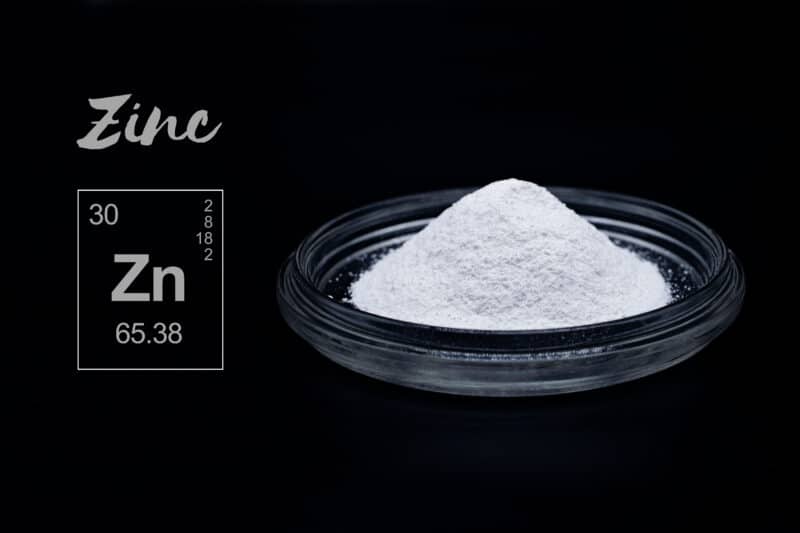
Zinc is mineral. It is considered to be an essential nutrient, meaning that the body cannot produce or store it. Therefore, we must get a constant supply through our diet or supplements. It plays many vital roles in many functions in the body including cell growth and division, energy production, immune function, DNA and protein synthesis, cognitive function, fertility and reproduction, the maintenance of normal testosterone levels, bones, hair, nails and vision, and vitamin A metabolism. It also contributes to growth and tissue repair, and the protection of cells from oxidative stress.
Does Zinc boost immune function?
A review by Read and colleagues (21) examined the role zinc in antiviral immunity. The authors noted that zinc deficiency is strikingly common, affecting up to a quarter of the population in developing countries, but also affecting distinct populations in the developed world as a result of lifestyle, age, and disease-mediated factors. Consequently, zinc status is a critical factor that can influence antiviral immunity, particularly as zinc-deficient populations are often most at risk of acquiring viral infections such as HIV or hepatitis C virus. The review highlighted the abundance of evidence that has accumulated over the past 50 years to demonstrate the antiviral activity of zinc against a variety of viruses, and how the therapeutic use of zinc for viral infections such as herpes simplex virus and the common cold has stemmed from these findings.
Zinc is a team player
Not only is zinc independently important for immune function, but it also works with other nutrients to enhance the function of the immune system. For example, zinc and quercetin work together. Quercetin helps enhance the absorption of zinc, and both have similar antiviral functions.
Wintergerst et al., (22) investigated the immune-enhancing role of vitamin C and zinc and their effect on clinical conditions. Their review highlighted the important roles played by both micronutrients in immune function and the modulation of host resistance to infectious agents, reducing the risk, severity, and duration of infectious diseases. The authors noted that a large number of studies with intakes of up to 1g of vitamin C and up to 30mg of zinc demonstrate that adequate intake of vitamin C and zinc improve symptoms and shorten the duration of respiratory tract infections including the common cold. Furthermore, vitamin C and zinc reduce the incidence and improve the outcome of pneumonia, malaria, and diarrhoea infections.
Best Immune Support Supplement: What is vitamin D?

Vitamin D is a fat-soluble vitamin, which plays an essential role in many functions of the body including the regulation of phosphorus and maintaining the structure of bone and teeth, and normal immune function. It can help to reduce depression, aid weight loss and play a role in building and maintaining muscle.
Vitamin D’s role in immune function has received considerable attention recently because there are an increasing number of studies highlighting its role in the prevention and treatment of respiratory viruses, such as Covid.
It is sometimes referred to as the ‘sunshine vitamin’ because it’s produced in our skin in response to sunlight. We also obtain it through foods such as oily fish, eggs, fortified fat spreads and some fortified breakfast cereals, but it’s difficult to get enough from food alone, as few foods provide it and often only in small amounts. Consequently, low vitamin D levels are found in significant numbers of all population groups in the UK: in winter 30-40% of all age groups in the general population are classed as vitamin D deficient. Even towards the end of summer 8% of adults and 13% of adolescents remain deficient. Black, Asian and Minority Ethnic (BAME) groups are most at risk, as darker skin produces far less vitamin D than lighter skin from exposure to sunlight. Therefore, the routine use of vitamin D supplements is being recommended increasingly.
Does Vitamin D boost immune function?
A review by Gleeson (1) on the immunological aspects of sport nutrition highlighted the importance of vitamin D for immune function when noting that vitamin D may be a particular concern as recent studies have emphasised its importance in limiting infection episode incidence and duration in both the general population and in athletes and many individuals exhibit inadequate vitamin D status during the winter months.
In a review of the benefits of vitamin D supplementation for athletes, Grant and colleagues (23) noted that clinical trials have confirmed that vitamin D supplementation reduces risk of acute respiratory tract infections, and approximately 30 observational studies have shown that incidence, severity, and death from COVID-19 are inversely correlated with vitamin D concentrations. Vitamin D supplementation is already familiar to many athletes and sports teams because it improves athletic performance and increases playing longevity. Thus, athletes should consider vitamin D supplementation to serve as an additional means by which to reduce risk of COVID-19 and its consequences.
Baeke and colleagues (24) reviewed the modulating effects of vitamin D on the immune system. They noted that vitamin D targets various immune cells, including monocytes, macrophages, dendritic cells (DCs), as well as T-lymphocytes and B-lymphocytes. Therefore, playing a role in modulating both innate and adaptive immune responses.
Grant et al., (25) reviewed the roles of vitamin D in reducing the risk of respiratory tract infections. The authors noted that, vitamin D can reduce risk of infections through several mechanisms. Those mechanisms include inducing reactions that can lower viral replication rates and reducing concentrations of pro-inflammatory cytokines which produce the inflammation that injures the lining of the lungs, leading to pneumonia, as well as increasing concentrations of anti-inflammatory cytokines, substances that are secreted by certain cells of the immune system and have an effect on other cells.
A review by Bae and Kim (17) on the roles of micronutrients in the immune system against Covid 19 noted that vitamin D improves the physical barrier against viruses and stimulates the production of antimicrobial substances to help prevent and fight infection.
Is the whole greater than the sum of its parts? What the science says about combining different substances in one product
As we have already seen, it has long been acknowledged that zinc works with vitamin C and we also know zinc and quercetin work together. Recently, a number of studies have highlighted the effectiveness of combining various ingredients which are contained in Time 4 Immune Pro immune support supplement. For example:
A review by Gombart and colleagues (26) investigated the use of multiple micronutrients to reduce the risk of infection. The authors noted that it has long been established that the complex, integrated immune system needs multiple specific micronutrients, including, for example, vitamins D, C E, B6, B12, zinc and selenium, which play vital, often synergistic roles at every stage of the immune response. They suggest that available evidence indicates that supplementation with multiple micronutrients with immune-supporting roles may modulate immune function and reduce the risk of infection and those vitamins and minerals with the strongest evidence for immune support are vitamins C and D and zinc.
Vetvicka and Vetvickova (27) evaluated the stress-reducing effects of combining, β-glucan, vitamin C and resveratrol, a polyphenol compound found in certain plants. The results of the study showed that compared to its individual components, the combination of substances was the strongest reducer of stress-related symptoms, including cortisol levels.
Mrityunjaya et al., (28) reviewed the effects of immune-boosting food supplements on COVID-19. The authors noted that several nutrients can provide immune-boosting, antiviral, antioxidant, anti-inflammatory effects. These include quercetin, zinc, vitamin D, vitamin C, probiotics, and selenium etc. They suggest grouping some of these nutrients in the right combination in the form of a food supplement may help to boost the immune system, prevent virus spread, preclude the disease progression to severe stage, and further suppress the hyper inflammation providing both prophylactic and therapeutic support against COVID-19.
A review by Jawhara (29) investigated the use of specific nutrients to boost immune defence prior to respiratory virus infections with the special focus on the coronavirus. The results showed that a healthy diet rich in vitamins C and D can reinforce the immune defence and reduce the risk of microbial infections. Additionally, baker’s yeast β-glucan can be used to strengthen the immune defence in healthy individuals prior to any possible viral infections. The author concluded that β-glucan, with a diet vitamins C and D, in addition to a healthy gut microbiota can provide synergistic immune system support, helping the body boost its defences naturally prior to respiratory virus infections.
Best Immune Support Supplement: Conclusion
Perhaps at no other time in recent history has our immune system received as much attention from the scientific community nor has its importance been so widely publicised. We have seen that our lifestyle has a profound influence on its function and ability to keep us well. While exercise is important for maintaining a healthy immune system, periods of prolonged, intense training can lead to suppression of some aspects of our immune function, increasing the risk of illness. Good nutrition is essential for optimal immune performance and to help attenuate the additional stress of arduous exercise, as a wide range of nutrients contribute to its function. Yet even with a well-balanced diet, it is not always possible to consume every important nutrient in the right quantities. Consequently, some form of immune support supplementation is often required to fortify an individual’s nutritional intake. Time 4 Immune Pro our immune support supplement provides a unique combination of substances that have been shown scientifically to aid immune function in just 4 easy to swallow capsules. With the greatest will in the world and the most comprehensive diet, we cannot make our immune system fool-proof, but every step we take to enhance its health and function helps to reduce our chances of infection and illness.

